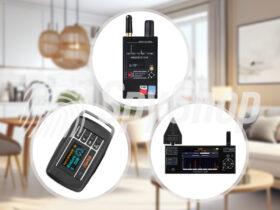After an intense stage of passion and excitement, you begin to notice the first abuses from your partner? Don’t ignore them! Red flags can indicate that your partner is toxic or your relationship has no future. If you spot them in time, you can try to repair the relationship or decide to break up before you fall into an emotional trap. Discover the warning signs of a toxic relationship and you will know if your partner is having a destructive effect on you!
What do love, cocaine and mental disorders have in common?
Red flags in a relationship - a toxic relationship scenario

Evaluating your relationship with your partner and creating a vision for your future together are not the easiest tasks. A relationship evolves, as do you and the person with whom you form it, so doubts that arise over time are normal. However, if they stem from your partner’s escalating, unhealthy behavior, it may signal that you are stuck in a toxic relationship.
Red flags do not have one rigid definition, as they occur on many levels and can touch on different aspects. They indicate abuse and manipulative behavior committed by the other person. They alert you that you will not form a serious, happy relationship with her, and a long-term relationship will have a devastating effect on your mental health.
Passive-aggressive behavior
From mild excuses to open, constant criticism, a passive-aggressive partner proves his superiority at every turn, exploits your weaknesses and induces guilt. He probably can’t cope with his own emotions, so he directs his frustrations in your direction.
Examples of passive-aggressive behavior in a relationship:
- petty pinches,
- sarcastic comments,
- undermining competence,
- punishing with quiet days,
- sexual frigidity and lack of affection
Victims of passive aggression lose their self-esteem, are at risk of depression, and may have trouble building a healthy relationship in the future.
Excessive need for control

The partner “loves too much”, is jealous, and therefore tries to control every aspect of your life? Set boundaries from the beginning, or don’t get involved in a relationship with him. A healthy relationship involves respecting privacy boundaries and giving space to the other person.

Examples of excessive control in a relationship:
- checking messages, phone records and browser history,
- isolating from friends and family,
- frequently dropping in for unannounced visits,
- imposing one’s will,
- interfering with a partner’s appearance,
- codependency
The consequence of excessive control is mounting tension, which in turn can lead to anxiety neurosis. Any behavior that manifests its hallmarks shatters security and trust in the relationship.
Emotional immaturity
Lack of control over feelings and the ability to talk about emotions, as well as running away from responsibility destroys bonds with other people, not only with partners. Most often this problem affects men and results from parenting mistakes.
Examples of emotional immaturity in a relationship:
- failure to fulfill commitments,
- refraining from apologizing,
- shifting blame to the other person,
- a demanding attitude,
- low or too high self-esteem (extremes)
A relationship with an emotionally immature person may end with the partner fleeing when he or she needs to get more involved or there are obligations (such as a child). On the other hand, this is a psychological problem, so it can be worked on with the help of a psychotherapist.
Different goals and plans for the future

The divergence in outlook on life in a relationship and long-term plans most often relates to aspects such as formalizing the relationship, having children or taking out a loan for a house so as not to live in a rented studio apartment any longer. Other value systems that stem from religion or culture can also be a source of disagreement.
Physical violence
Solicitation for sexual activities, “unwanted touching,” tugging, slapping or pulling hair are forms of violence that nothing justifies. They should never be ignored. Continuing a relationship with an aggressive or explosive partner is dangerous.
Other warning signs
Want to protect yourself from a toxic relationship? Pay attention to:
- your partner’s social life – if he doesn’t have any friends then maybe he doesn’t know how to maintain close ties with other people,
- his previous relationships – your vigilance should be aroused by his negative statements about each ex and his insistence that none of the previous breakups were his fault,
- addictions – alcohol, gambling, drugs and even computer games can impinge on your relationship,
- constant contact with your ex – consider whether he treats her as a backup option and what this means for your relationship,
- the attitude of your loved ones – do friends and family like your other half?
Leaping off the emotional swing: the decision to break up

Red flags will not disappear on their own, and an ignored problem will only grow. However, not every one of them is an absolute signal for a breakup. If you love your partner and feel safe with him, you can talk to him about your comments on your relationship.
Separation is always difficult, but in the case of toxic relationships the whole process becomes even more complicated. The longer the seniority of the couple, the more the victim’s psychological and physical boundaries can be violated. A mixture of anxiety, sadness and anger, often fueled by fear as well, makes it difficult to decide to leave a toxic partner. Unfortunately, not every relationship can be repaired, but you can always save yourself.
Red flags in the relationship - FAQ
Learn the answers to the most frequently asked questions!
What do red flags in a relationship mean?
Red flags are warning signs of a toxic relationship. They can take the form of abuse, manipulation, control or violence. It is not uncommon for them to reveal an antisocial personality disorder, narcissism and emotional immaturity in a partner.
What are the red flags in a relationship?
The most common red flags in a relationship are: rude comments on appearance or achievements, punishing quiet days, isolating from loved ones, reading the news, shifting blame to the other person, blackmailing, speaking negatively about any ex, addictions.
What does it mean that a relationship is toxic?
A toxic relationship does not meet the needs and desires of the partners, and violates their emotional and physical boundaries. It is built on unhealthy behavior, disrespect, control or jealousy.











Leave a Reply